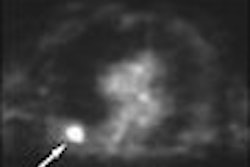Dear X-ray Insider,
Some overhead radiographs and a fluoroscopic spot of the terminal ileum: If that's what constitutes a routine small-bowel follow-through (SBFT) exam in your practice, you're in the mainstream of U.S. radiology.
Unfortunately, you might not want to be in that company.
The American College of Radiology recommends that SBFT exams include fluoroscopic spot images with manual compression to spread out and visualize all overlapping loops of the entire small bowel. Without that step, experts say, lesions may be missed.
Most radiologists probably realize they should include fluoroscopy with compression, but don't take the time, according to University of Pennsylvania GI specialist Dr. Marc Levine. That's why he and his colleagues surveyed chief x-ray technologists to get an unvarnished report on actual SBFT practices. Levine's findings are featured in our X-Ray Radiology Insider Exclusive article.
The disconnect between expert opinions and real-world practices may not be a surprise. But like it or not, the ACR guidelines may be the opinion that really matters in a court of law.
"If a lesion is missed and litigation ever ensues," malpractice expert Dr. Leonard Berlin observed, "then the first question that is going to be asked is, 'Was the exam done correctly?'
"I think the take-home message from Levine's article is that if you choose not to follow everything in the guideline, that's fine," said Berlin. "But be aware of the fact that if something is missed and it can be shown that the miss is related to failure to follow the guideline, this is going to increase the likelihood of a legal finding of liability."
Click here to read more.



















